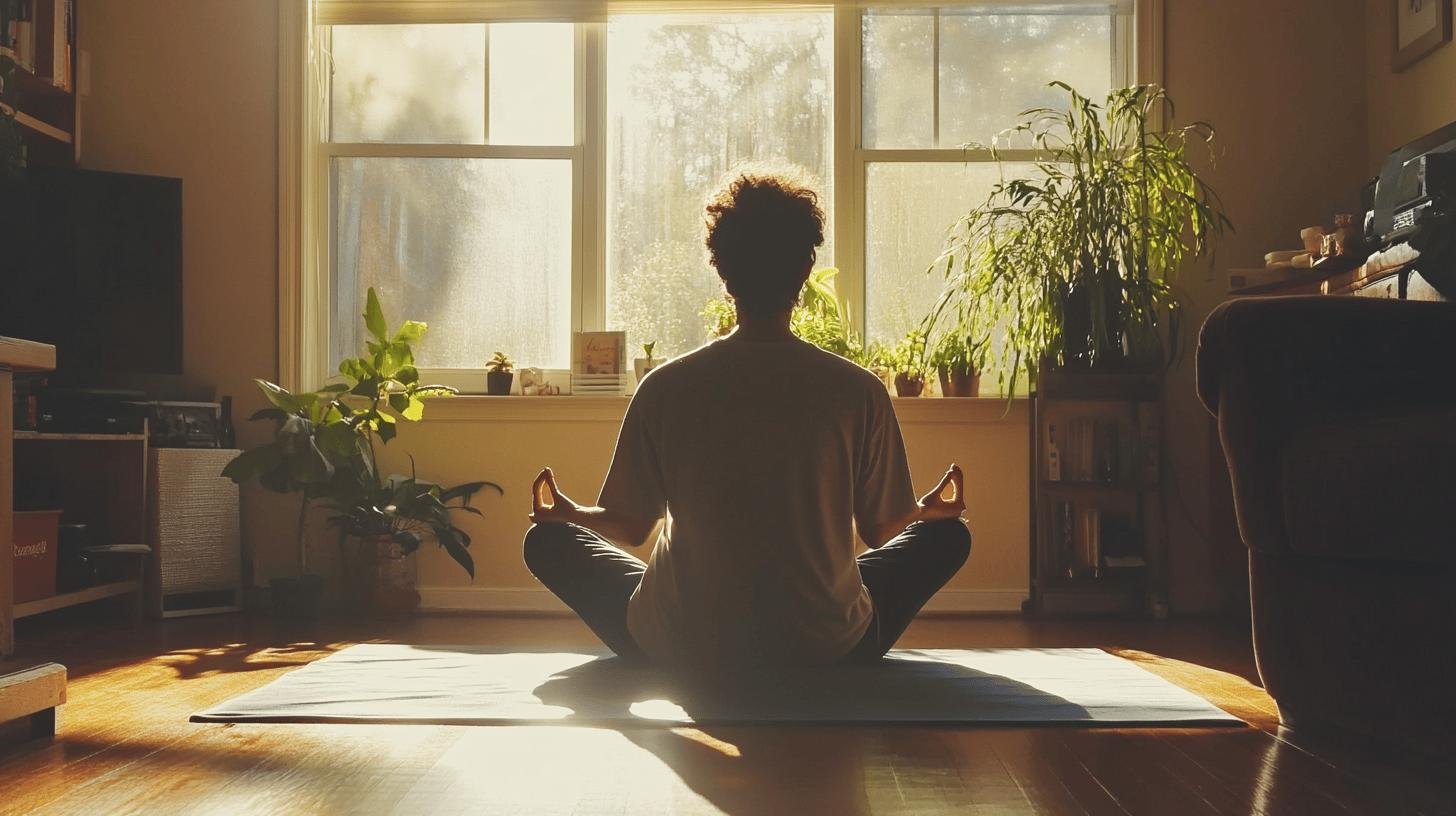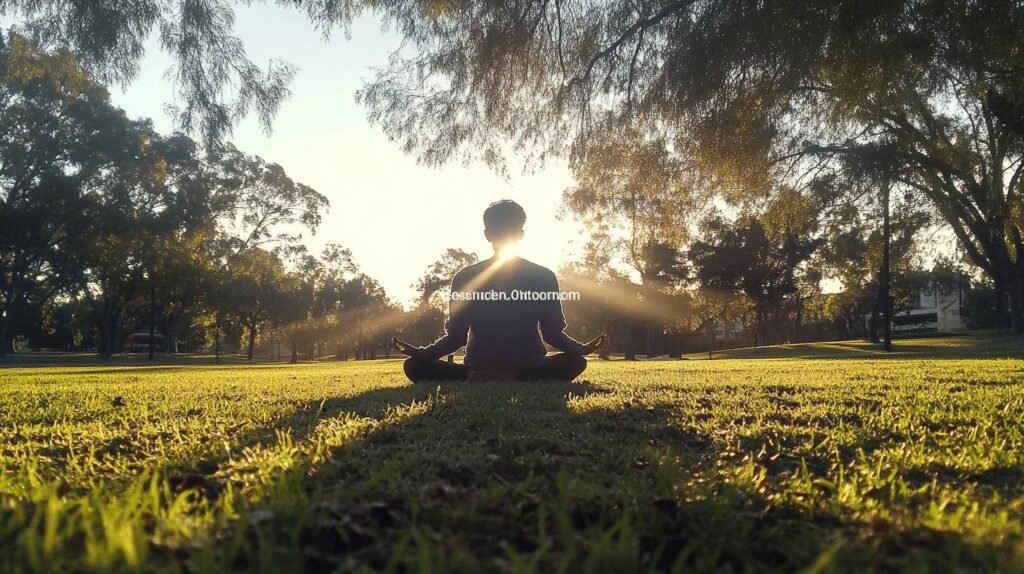TL;DR:
- Mental health impacts feelings, actions, and decision-making.
- Mental hygiene involves daily practices for emotional balance, including:
- Regular physical activity
- Mindfulness exercises
- Adequate sleep
- Balanced diet
- Time outdoors
- Benefits of mental hygiene:
- Improved focus
- Increased emotional resilience
- Enhanced social interactions
- Personal hygiene (e.g., bathing and grooming) also boosts mental well-being by providing routine and stability.
- Direct Primary Care (DPC) offers personalized, preventive mental health care without insurance hassles, fostering better doctor-patient relationships and proactive self-care.
Ever thought about why we scrub our hands to stay healthy, but we don’t always “scrub” our minds for well-being? Let’s chat about mental health and mental hygiene—two powerhouses that keep our spirits up and running. Mental health is all about our emotional and social vibes, while mental hygiene focuses on the day-to-day habits that keep us balanced and breezy. Imagine if we all concentrate on simple routines, like mindfulness exercises and regular physical activity, to maintain mental harmony. Ready to see how it can improve your daily life? Let’s dive in!
Understanding Mental Health and Mental Hygiene
Mental health reflects how we feel, act, and think as we tackle life’s challenges. It’s like the engine that keeps us moving through stress, social interactions, and everyday decisions. When we’re mentally healthy, we handle stress well, enjoy socializing, and make good decisions. But if it falters, life can feel tougher.
Now, let’s discuss mental hygiene. Consider it a daily care for your mind, like flossing for mental well-being. It includes habits that sustain mental health and keep us connected with the world. Focusing on simple daily actions keeps our minds clear and emotions balanced. Think of it as preventing adverse reactions while pushing for emotional stability.
Here are some basic mental hygiene practices you can try:
- Regular physical activity
- Mindfulness exercises
- Adequate sleep
- Balanced diet
- Time in nature
Why is mental health awareness vital in society? Understanding mental well-being allows open conversations and reduces stigma. This awareness nudges everyone to care for their mental health, like brushing their teeth to avoid cavities. It’s a collective step towards a healthier, happier world.
Importance of Mental Hygiene in Daily Life

Mental hygiene is the quiet hero of daily routines, striving to balance us emotionally. It’s about small habits significantly impacting our lives, like practising mindfulness and enjoying the sunshine. By maintaining good mental hygiene, we’re not just getting by; we’re thriving. It helps us feel more in control, less stressed, and prepared for whatever life throws at us. Through harmony with our surroundings, we better recognize our strengths and tackle everyday challenges head-on.
How does mental cleanliness affect personal and professional lives? It’s the secret to staying sharp and connected. A clear mind enhances focus, relationship-building, and decision-making. This clarity boosts work productivity and enriches personal life, making us more present. Think of it as a well-tuned instrument, harmonizing with the world.
| Benefit | Description |
|—————————-|——————————————————————————————–|
| Improved Focus | Enhances concentration and attention, making daily tasks more manageable and efficient. |
| Emotional Resilience | Increases the ability to bounce back from stress and adapt to life’s changes. |
| Enhanced Social Interactions| Fosters better communication and relationships by promoting understanding and empathy. |
Practical Tips for Maintaining Mental Hygiene
A consistent mental hygiene routine is like a toolkit for your brain. Why does this matter? Routine helps build resilience against stressors and keeps mental wellness in check. Consistency reinforces positive habits, making stress management, focus, and mood balance easier. It’s about enjoying life to the fullest, not just getting through the day. Let’s explore some daily practices to boost your mental health game.
- Regular physical activity
- Balanced diet
- Adequate sleep
- Stress management techniques
- Time spent outdoors
- Social Connections
Mindfulness Practices for Mental Health
Mindfulness acts as a mental break, offering a breather from life’s rush. Meditation and deep-breathing exercises are great for reducing anxiety and improving focus. They centre attention in the present, grounding you. Even a few minutes daily can clear the mind significantly.
How do you integrate these practices into daily life? Start small. Incorporate them into activities, like a mindful walk or a quick meditation session. The Key is making them part of your routine, like brushing your teeth. Soon, you might see a mood boost and a clearer mind. It’s about forming habits that support well-being so you’re ready for life’s challenges.
The Role of Personal Hygiene in Mental Health

Ever wonder how washing your face shapes your brain? Personal hygiene isn’t just about looking good—it’s a mental booster, too! Maintaining hygiene can enhance mental well-being by introducing routine and control to your day. Daily habits like showering or brushing your teeth provide life rhythm, creating a sense of normalcy and stability. Consistent habits reduce anxiety and stress, helping you feel more in control.
What hygiene practices boost mental well-being? Let’s take a look:
- Regular bathing
- Grooming and hair care
- Dental hygiene
- Clean clothes and bedding
Upholding these practices offers more than cleanliness; they nurture a healthier mind. Personal hygiene can feel like a mini mental reset, refreshing you to face the world. This renewal improves your mood and enhances your outlook on the day. It’s about feeling good from the inside out, one clean step at a time!
Mental Health and Direct Primary Care: An Affordable Approach
Direct Primary Care (DPC) is like having a health expert at your service without insurance hassles. It focuses on mental well-being and preventive care, offering personalized support. Think of it as a healthcare ally, assisting with urgent and long-term mental health needs. Without insurance interference, doctors spend more time understanding and addressing mental health, tailoring care to your unique needs.
Benefits of Direct Primary Care for Mental Health
DPC excels in personalized and preventive care. It’s like having a health mentor who fits your lifestyle. No insurance paperwork means more quality time with doctors. They emphasize preventive measures, keeping mental health issues at bay, and providing timely support.
Investing in DPC changes the self-care game. It encourages proactiveness in mental health. With affordable fees, you can budget for regular check-ins, integrating mental health care into your routine. Building a relationship with your doctor means they truly understand your health journey. This setup empowers informed decisions about well-being. DPC might fit the bill if you seek a healthcare model centred on you.
Final Words
We’ve journeyed through understanding mental health and mental hygiene, exploring their critical roles in our lives. From defining mental health’s daily influence to practical tips for maintaining mental hygiene, you’ve seen how simple habits can bring emotional balance. The link between personal hygiene and mental health highlights how routine can uplift your well-being.
Finally, direct primary care shines as an affordable path to investing in mental health, emphasizing self-care. Embrace these insights—it’s time to prioritize your mental well-being and nurture a healthier, happier life.
FAQ
How does hygiene relate to mental health?
Mental hygiene practices like regular exercise and mindfulness can positively affect mental health by reducing stress and boosting emotional stability. Healthy habits are key to keeping a balanced mind in a fast-paced world.
When did mental hygiene become mental health?
The shift from “mental hygiene” to “mental health” began in the mid-20th century. This change reflected a broader understanding of mental well-being, focusing on overall emotional and psychological health rather than just prevention.
How does mental health affect your lifestyle?
Mental health impacts your thoughts, emotions, and actions. Good mental health helps manage stress, improves social interactions, and aids decision-making. Staying mentally healthy supports a fulfilling and balanced lifestyle.
What is the basic mental hygiene?
Basic mental hygiene involves daily habits like physical activity, a nutritious diet, quality sleep, and stress management. These practices keep your mind healthy and boost resilience against life’s challenges.
What is the difference between mental health and mental hygiene in points?
Mental health focuses on emotional, psychological, and social well-being, while mental hygiene involves habits that promote mental health. Think of mental health as the goal and mental hygiene as the daily upkeep to achieve it.
How does personal hygiene impact mental health?
Personal hygiene can enhance mental well-being by creating routine and control. Regular practices like bathing and grooming help maintain your mental health, providing comfort and stability in daily life.
What is the relationship between mental health and mental hygiene?
Mental health and mental hygiene are closely linked. While mental health concerns one’s overall emotional state, mental hygiene focuses on daily activities that nurture and protect mental wellness.
What is the importance of mental hygiene in daily life?
Mental hygiene is crucial for emotional balance and well-being. It helps you handle daily stressors effectively and keeps your mind sharp and stable—it’s like a daily workout for your brain!
What are some mindfulness practices for mental health?
Mindfulness can reduce anxiety and improve focus. Techniques such as meditation and deep breathing exercises effectively enhance mental health by keeping stress at bay and centring your mind.

